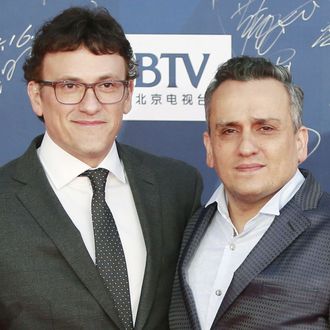
Spoilers ahead for Captain America: Civil War.
You might think that if a dozen superheroes battled each other, as they do in Civil War’s colossal airport set piece, at least one of them would end up in the morgue. In the movie, things don’t reach that point: Though War Machine pilot James Rhodes suffers a paralyzing injury, the fatality count doesn’t exceed zero. That’s a significant departure from the original comic book version for this story, wherein someone does indeed die — and it’s the title character.
In the epilogue of the comics arc Civil War (Captain America, issue No. 25), Captain America is assassinated. Following the schism between the superheroes (in the comics story line, it’s because of the Superhero Registration Act), Cap surrenders to the authorities, and then, on the courthouse steps, he’s shot — first by Crossbones, and next by a brainwashed Sharon Carter. (The death didn’t stick — superheroes don’t stay dead for long in comic-book world).
This, however, was not the story that the directors Joe and Anthony Russo wanted to tell. When Vulture caught up with them at the Cinema Society and Audi-hosted screening of the film in New York, they said they had discussed the original comics version, but rejected it.
“Here’s what it is,” Anthony Russo explained. “We were trying to tell the story of a family falling apart. The tragic end of that story is that the family is divided. For us, the emotional catharsis that we were driving at was the difficulty of that kind of ending. We didn’t want it to be that the family is divided, and then somebody dies, you know?”
With Cap’s survival, he can come back for subsequent Marvel films, including both parts of Avengers: Infinity War. Since the Russo brothers are set to deliver those next two installments, we wondered if actor Chris Evans’s contract — and his willingness to extend it — was a factor when they decided how to conclude the conflict in this chapter? Did it have any bearing?
“You know, it does,” Joe Russo allowed, “but we really don’t pay any attention to contracts. It’s really about the storytelling at the end of the day. It’s nice that everybody’s under contract, but ultimately, it doesn’t mean job security.”
“All the contracts do is give you an option to use somebody,” Anthony Russo added. “They don’t give you a mandate to use someone.” Which means, until they’re confirmed, don’t assume anyone in the MCU will show up just because they have multiple films left on their contract — even if they’re hunky or hulky.

